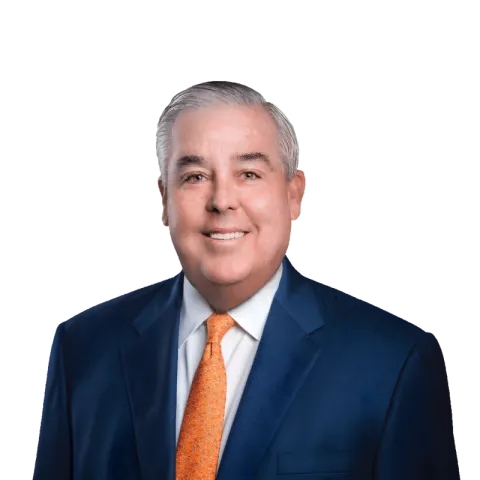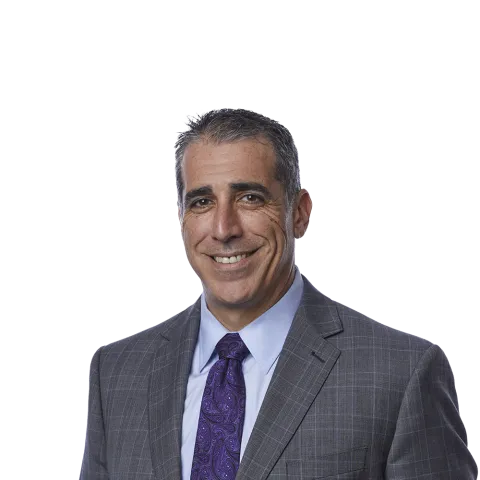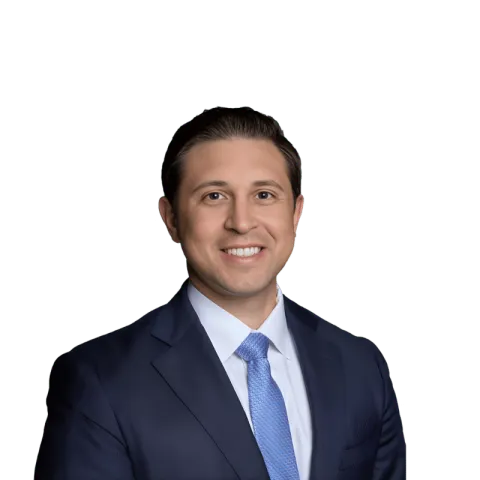Results may vary depending on your particular facts and legal circumstances. The attorney featured above is licensed in Florida. For a full list of attorneys in your state please visit our attorney page.
ORLANDO MARITIME ATTORNEY
Passengers and boaters face risks on the water from collisions, unsafe conditions, and crew negligence. We help victims seek compensation and justice.
Results may vary depending on your particular facts and legal circumstances. The attorney featured above is licensed in Florida. For a full list of attorneys in your state please visit our attorney page.
Orlando Maritime Accidents
Seafaring has a rich heritage in our country and has been a crucial part of the economy of United States — and Florida in particular — for hundreds of years. Those who work in this industry, whether on ships or as longshore workers, provide an indispensable and frequently under-appreciated service, all at great peril to their own personal safety.
Because of this importance, the federal government has largely assumed jurisdiction over what happens when maritime workers are injured on the job through the passage of several statutes.
Among these, the Jones Act and the Longshore and Harbor Workers Compensation Act (LHWCA) ensure that injured sailors and dockworkers get the care and support they need when misfortune strikes. Our Orlando maritime lawyers are well versed in these laws and will help if you have been injured on the job.
Contact us for a free consultation today.
Origins of the Jones Act
The Jones Act – which is also called the Merchant Marine Act – was passed by Congress in 1920 to ensure uniformity throughout the nation's coastlines in certain affairs involving merchant marine vessels.
While the Jones Act was a fairly broad law that covered numerous subjects relating to merchant mariners and vessels, it is most often referenced as, in effect, a workers compensation act for maritime sailors.
In broad strokes, this is accurate. The Jones Act provides that employers and/or ship owners are liable for providing medical care and maintenance to sailors injured aboard a ship.
However, the Jones Act differs from typical state workers' compensation laws in a number of important ways. The most important of which is the requirement of negligence or “unseaworthiness.”
Unlike typical workers compensation laws, which protect workers injured on the job regardless of fault – often even if the worker's own negligence caused the injury – the protections of the Jones Act do not apply unless a sailor's injury was caused by the negligence of the employer or the “unseaworthiness” of the vessel upon which they served.
This is still not a high burden to meet. Any negligence on the part of a crew member or officer, any lapse in maintenance, or any defect in equipment can meet the standard (even if it is only a partial cause of the injury), is often enough to meet the burden.
Once that burden is met, the sailor's employer or the owner of the ship must pay for the sailor's medical care and must also support the sailor until medically fit to return to duty.
Workers Compensation for Dock Workers
The Longshore and Harbor Workers Compensation Act (LHWCA) is more recent than the Jones Act and more closely resembles typical state workers compensation laws.
For instance, it provides no-fault compensation – including medical expenses, lost wages during recovery, and death benefits to family in the case of a fatal accident – to workers injured on the navigable waters of the United States, including adjoining piers and dock facilities but not including ships' crews.
Like typical workers compensation, it excludes workers who are injured solely due to intoxication or who deliberately injure themselves. Also like typical workers compensation laws, the LHWCA is the sole remedy covered workers have against their employers and those employers cannot be sued for negligence.
The United States Department of Labor's Office of Workers Compensation administers the compensation program, established by the LHWCA. This means that LHWCA claims follow a process and procedure that differ greatly from those used in workers compensation claims arising under state law.
An administrative law judge within the Office of Workers Compensation decides disputed cases. Appeals from that judge's decision must go to the Benefits Review Board.
Further appeals are heard by the geographically appropriate United States Court of Appeals – this would be the U.S. Court of Appeals for the Eleventh Circuit for dockworkers injured in Florida – and potentially by the United States Supreme Court.
So, maritime attorneys representing injured Orlando dock workers in these types of claims must be well versed not only with the LHWCA itself but also with the operating procedures and standards of these forums.
Negligence at Sea
Claims for negligence can also arise at sea outside of the LHWCA and Jones Act. These include suits by non-employee passengers on pleasure or transport craft, like cruise ships. Ship operators owe a high duty of care to passengers and are frequently liable when injuries occur.
However, determining where to file a lawsuit, who has jurisdiction, and what law applies can be difficult, as it may not necessarily be the law of Florida. Maritime injury attorneys are well acquainted with these issues and know how to keep their clients on the right heading.
Lastly, dockworkers and sailors injured on the job may have legal claims against parties other than their employer or the owner of the ship upon which they were sailing.
Third parties, such as manufacturers of faulty equipment or negligent operators of other ships, may also be liable for their injuries.
While the LHWCA prevents injured workers from suing their employers, it does not prevent them from suing non-employer third parties whose negligence may have caused their injuries.
Maritime Law Help in Florida for People Injured on the Water
Maritime and admiralty law is a complicated and archaic area that few attorneys fully understand. Fortunately, the attorneys at Morgan & Morgan are well acquainted with the various, laws, regulations, and treaties that comprise the body of admiralty law in Florida.
If you have been injured on the job as a merchant marine, ship's crew or dock worker, or if you have been injured as a passenger on a ship or boat, our lawyers want to help. Call us today at (407) 420-1414 or request a free case evaluation online to find out what rights you may have.
150,000+ Five Star Reviews
The reasons why clients trust Morgan & Morgan.
Results may vary depending on your particular facts and legal circumstances. Based on select nationwide reviews.
What Are the Most Common Types of Maritime Accidents?
Just about any type of accident can occur while at sea or while working on vessels. Some of the most common incidents include slip and falls over spilled liquid or debris on the boat, explosions or fires on ships, and falls from scaffolding or the vessel itself.
Depending on the size of the boat and equipment on board, crane accidents and dropped objects may also result in injuries.
What Causes Maritime Accidents?
Each maritime accident is different. Some arise due to negligence or equipment malfunction, while others occur during severe storms at sea. Failure to follow safety protocols and training may also lead to accidents.
Victims of maritime accidents should seek the advice of a qualified Orlando maritime lawyer at Morgan & Morgan to determine the cause of their accidents. In some cases, there may be multiple reasons why the incident occurred.
What Types of Injuries Are Common in Maritime Accidents?
Injuries arising from maritime accidents vary. Some people suffer broken bones or lacerations, while others experience more severe wounds, such as traumatic brain injuries, back injuries, and spinal cord damage. In the worst cases, injuries result in death.
Attorneys at Morgan & Morgan can assist victims suffering from severe injuries after a boating accident. We can also help surviving family members who lost their loved ones due to the negligence of others by filing a wrongful death claim.
How Can a Maritime Accident Lawyer Help Me?
Maritime law is highly complex, and you’ll need someone familiar with the rules and regulations to fight on your behalf.
An attorney will start by gathering all evidence related to your claim, including photographs, witness statements, medical bills, and testimony from maritime experts. We’ll determine which laws apply to your case and establish who was at fault for your injuries.
Next, we’ll file a lawsuit against the negligent parties and begin the negotiation process. In some cases, insurance providers may offer you a fair settlement that covers your past and future expenses. However, an attorney will take your case to court if the defendants are unwilling to arrive at an acceptable deal.
Cases that go to court often take longer to resolve, as they are subject to the judge’s availability. It also takes time to gather witnesses and evidence and prepare the case for trial.
Your Orlando maritime lawyer will determine whether your case will likely resolve through settlement or end up in a courtroom.
How Long Do I Have to File a Maritime Accident Lawsuit in Orlando?
In most cases, personal injury lawsuits from maritime accidents must be filed within four years in Florida. However, in cases where admiralty law takes precedence over Florida law, the statute of limitations is three years.
Other laws may limit the time to file a lawsuit to an even shorter time limit. If you wait too long, you might not have any recourse for collecting compensation for your injuries.
Following a maritime accident, it’s best to speak with an attorney as soon as possible, especially if you’ve sustained injuries. An attorney will determine the statute of limitations that applies to your case and begin working immediately to establish the circumstances of your accident.
What Types of Damages Are Available in a Maritime Accident Lawsuit?
You may be able to recover financial compensation for your injuries in a maritime accident. The attorneys at Morgan & Morgan can negotiate with insurance providers to obtain compensation to cover your past and future medical bills and lost wages, as well as damages for your emotional pain and suffering.
If the defendant’s insurance provider is unwilling to give you a fair settlement, we will take your case to court. A court might award you punitive damages if the defendant’s actions were particularly egregious.
Our Results
How It Works
Unsure what to do next? With 35 years of experience, our personal
injury lawyers will guide you every step of the way.
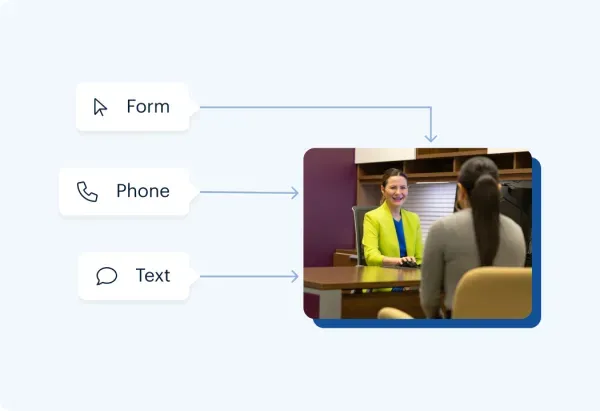
Contact Us 24/7 - It’s Free
Start your claim
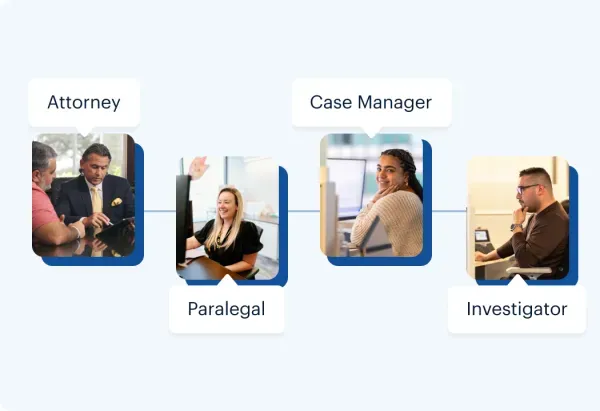
Meet your dedicated attorney
Meet the attorneys
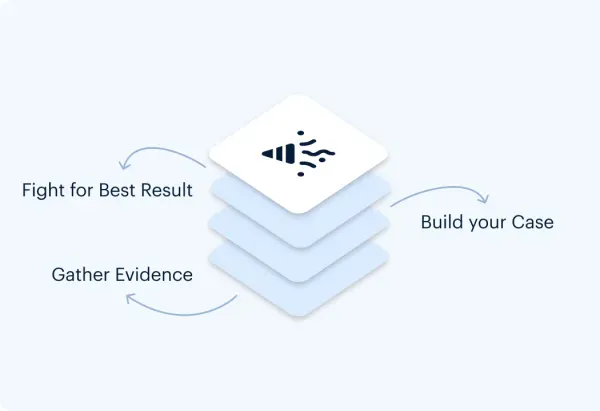
We fight for more
Learn more about the case process
Results may vary depending on your particular facts and legal circumstances. The attorneys shown in these photos may not be licensed in your state. To find an attorney licensed in your area, please visit our attorney page.
Local Care
Backed by America’s Largest Injury Law Firm.
$30 Billion
Recovered for clients
nationwide700,000+
Clients and families
served1,000+
Attorneys across
the country1
Click may change your life
The attorney featured above is licensed in Florida. For a full list of attorneys in your state please visit our attorney page.
Results may vary depending on your particular facts and legal circumstances.
Learn More
Injured and not sure what to do next?
We'll guide you through everything you need to know.
